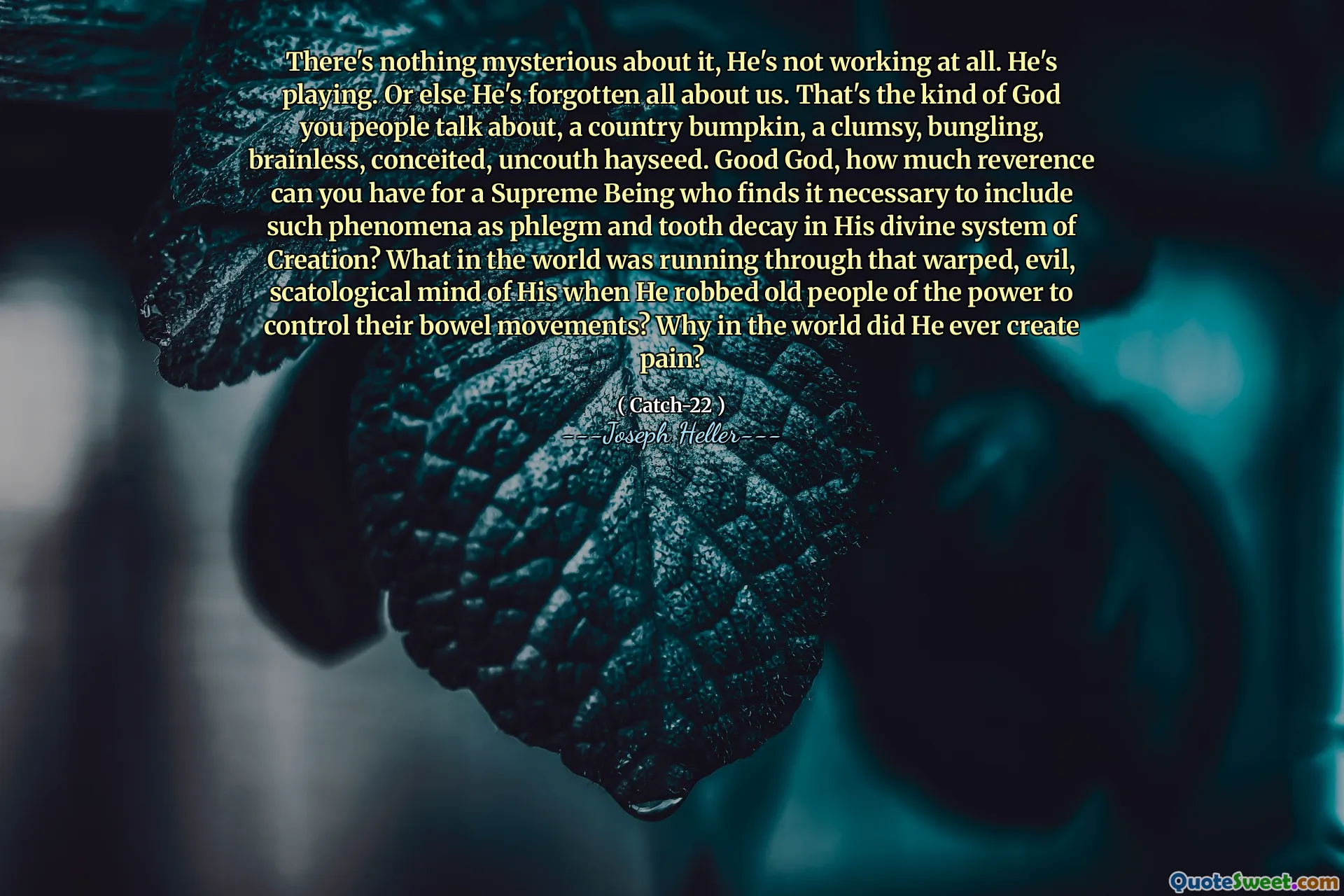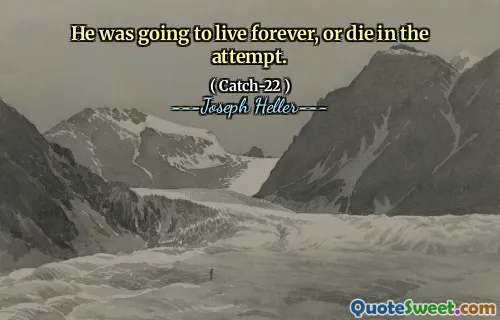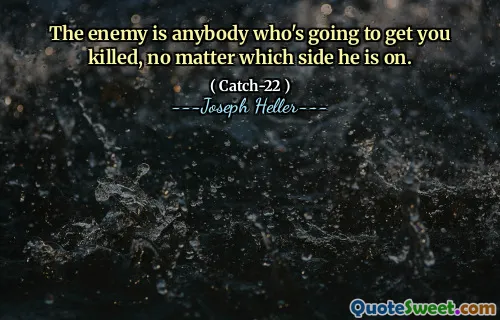
There's nothing mysterious about it, He's not working at all. He's playing. Or else He's forgotten all about us. That's the kind of God you people talk about, a country bumpkin, a clumsy, bungling, brainless, conceited, uncouth hayseed. Good God, how much reverence can you have for a Supreme Being who finds it necessary to include such phenomena as phlegm and tooth decay in His divine system of Creation? What in the world was running through that warped, evil, scatological mind of His when He robbed old people of the power to control their bowel movements? Why in the world did He ever create pain?
In Joseph Heller's "Catch-22," the narrator expresses frustration and disbelief regarding the nature of God. He characterizes God as seemingly neglectful, likening Him to a foolish and simple-minded figure who is either preoccupied with trivial matters or entirely ignorant of human suffering. This perception challenges the traditional reverence often associated with a deity, suggesting that if God exists, His creations are puzzling and flawed.
The narrator questions the logic behind God's design, specifically pointing out the existence of ailments and limitations that afflict humanity, such as aging, pain, and bodily functions gone awry. This critique reveals a deep cynicism about divine intention and the overall meaning of existence, emphasizing the absurdity he perceives in the way life unfolds under a supposed omnipotent being.











